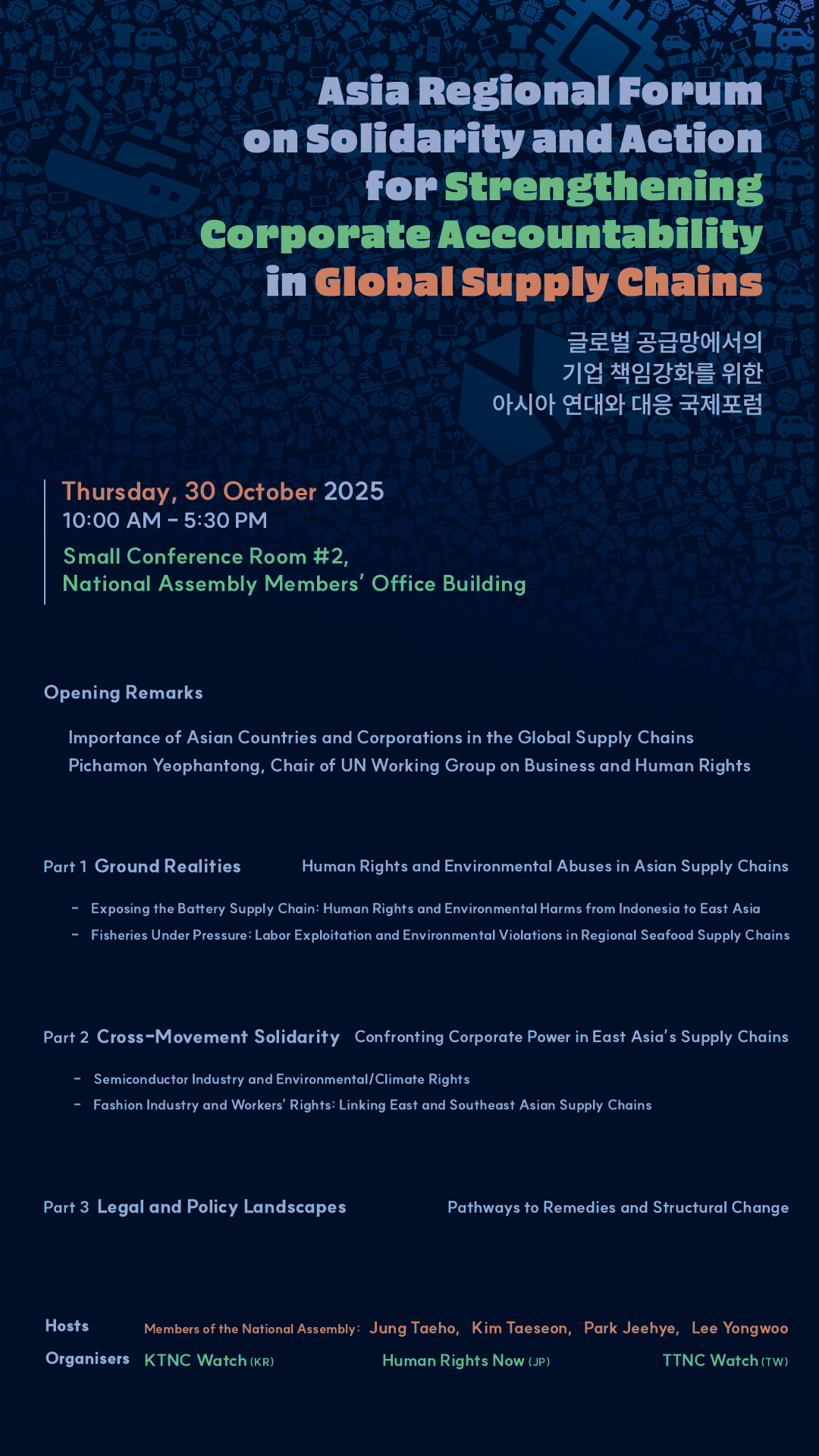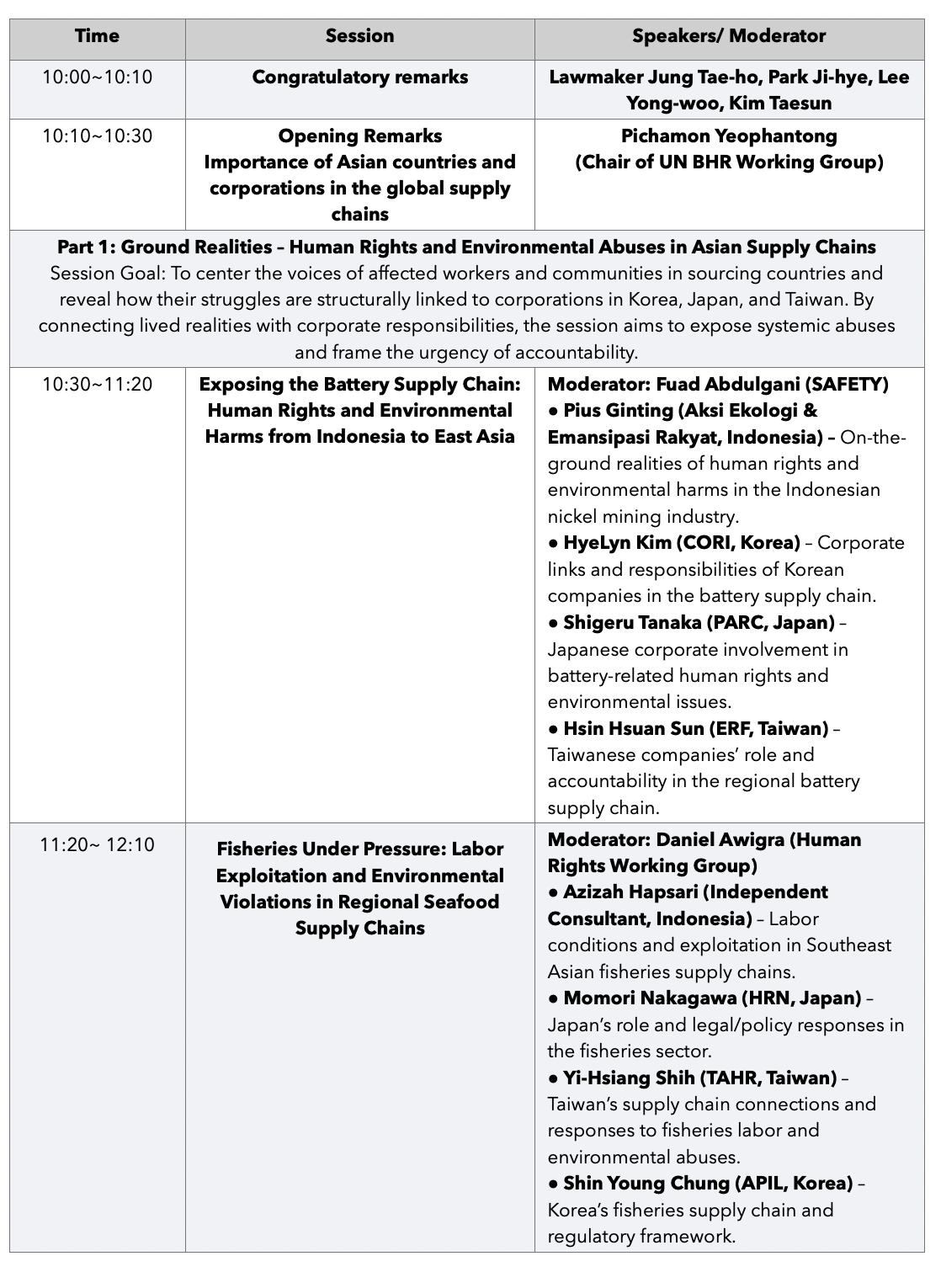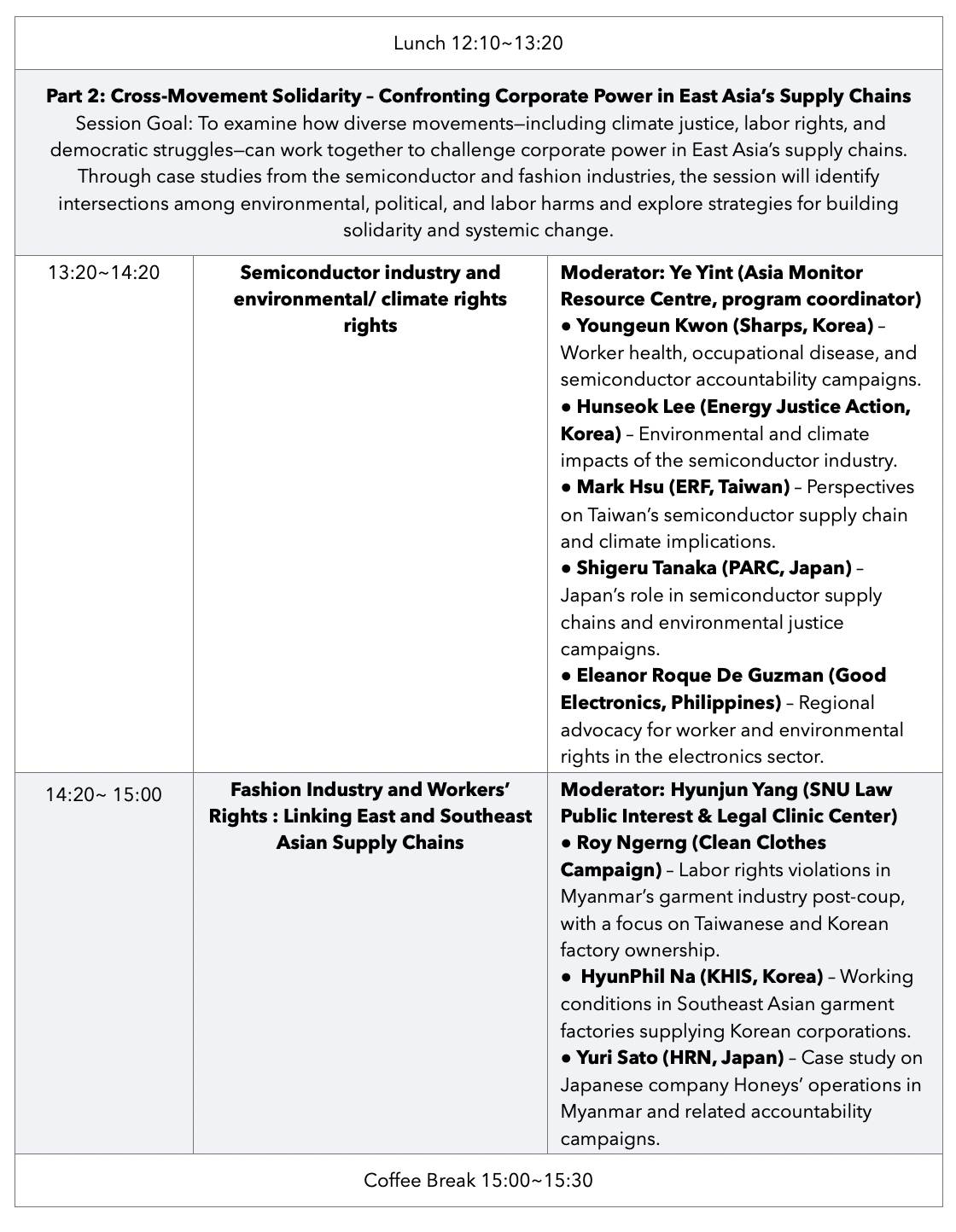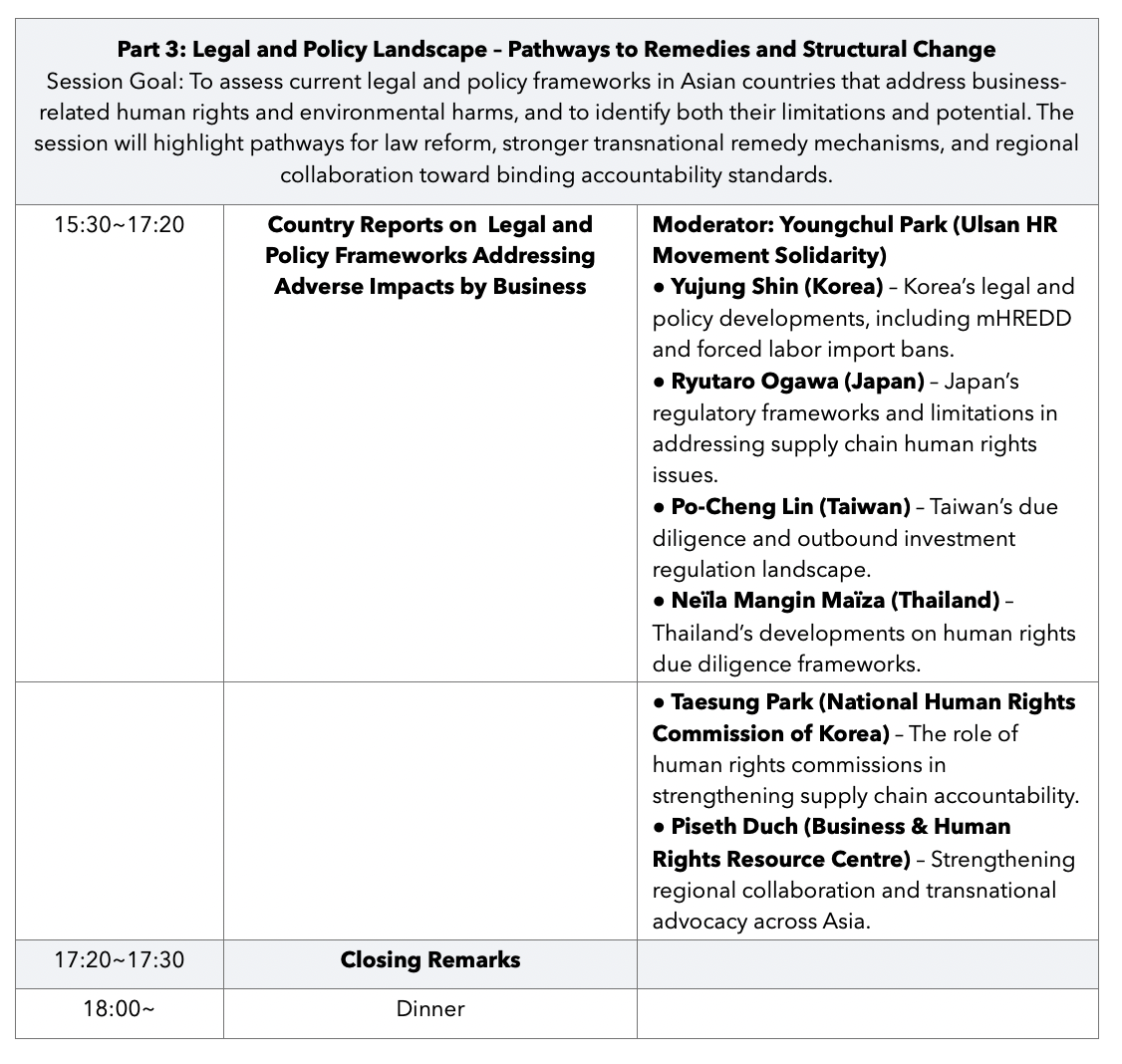
October 30, 2025 | National Assembly, Seoul, Republic of Korea
As transnational corporations from South Korea, Japan, and Taiwan continue to expand their operations across Asia, communities and workers in supply chains face persistent human rights and environmental harms — from forced labor and pollution to unsafe working conditions. The Asia Regional Forum on Solidarity and Action for Strengthening Corporate Accountability in Global Supply Chains brings together civil society organizations, experts, and policymakers from across East and Southeast Asia to share ground realities, strengthen regional solidarity, and discuss pathways toward effective legal and policy reforms. This gathering aims to advance collective efforts for corporate accountability, environmental justice, and the protection of human rights throughout Asia’s interconnected supply chains.
Date | 2025. 10. 30.
Time | 10:00-17:30
Location | The Second Small Conference Room in the National Assembly Hall (의원회관 제2소회의실)
Language | English and Korean
Organizers | KTNC Watch, Human Rights Now, TTNC Watch
Program |
Overall Moderator: Youngah Park (GongGam Human Rights Law Foundation)


